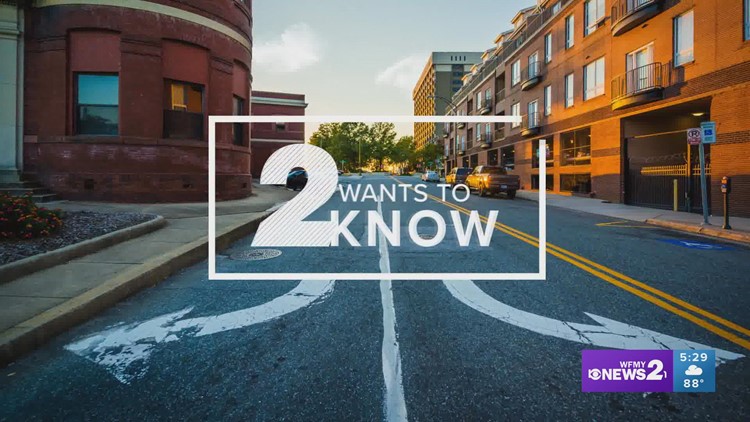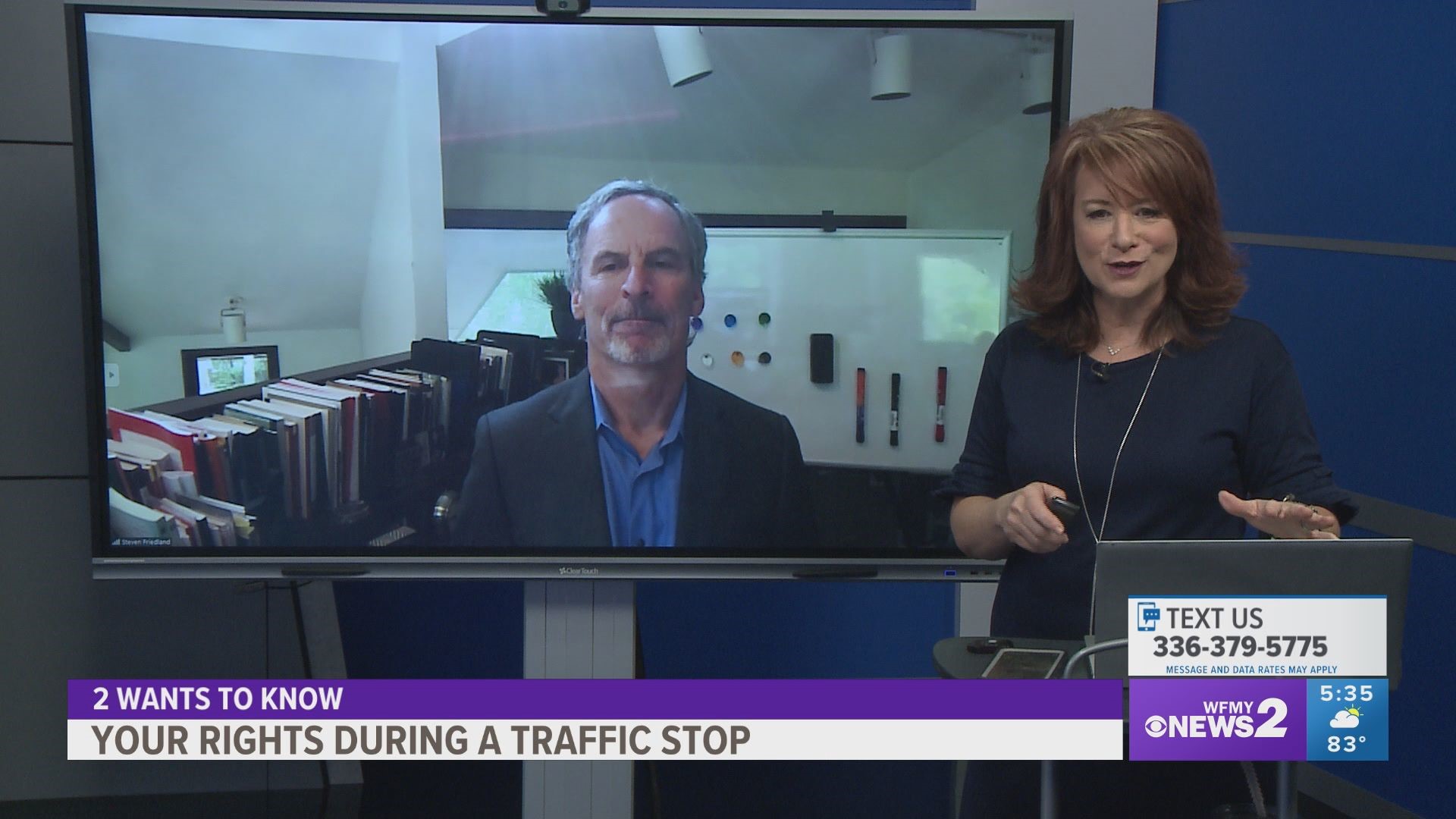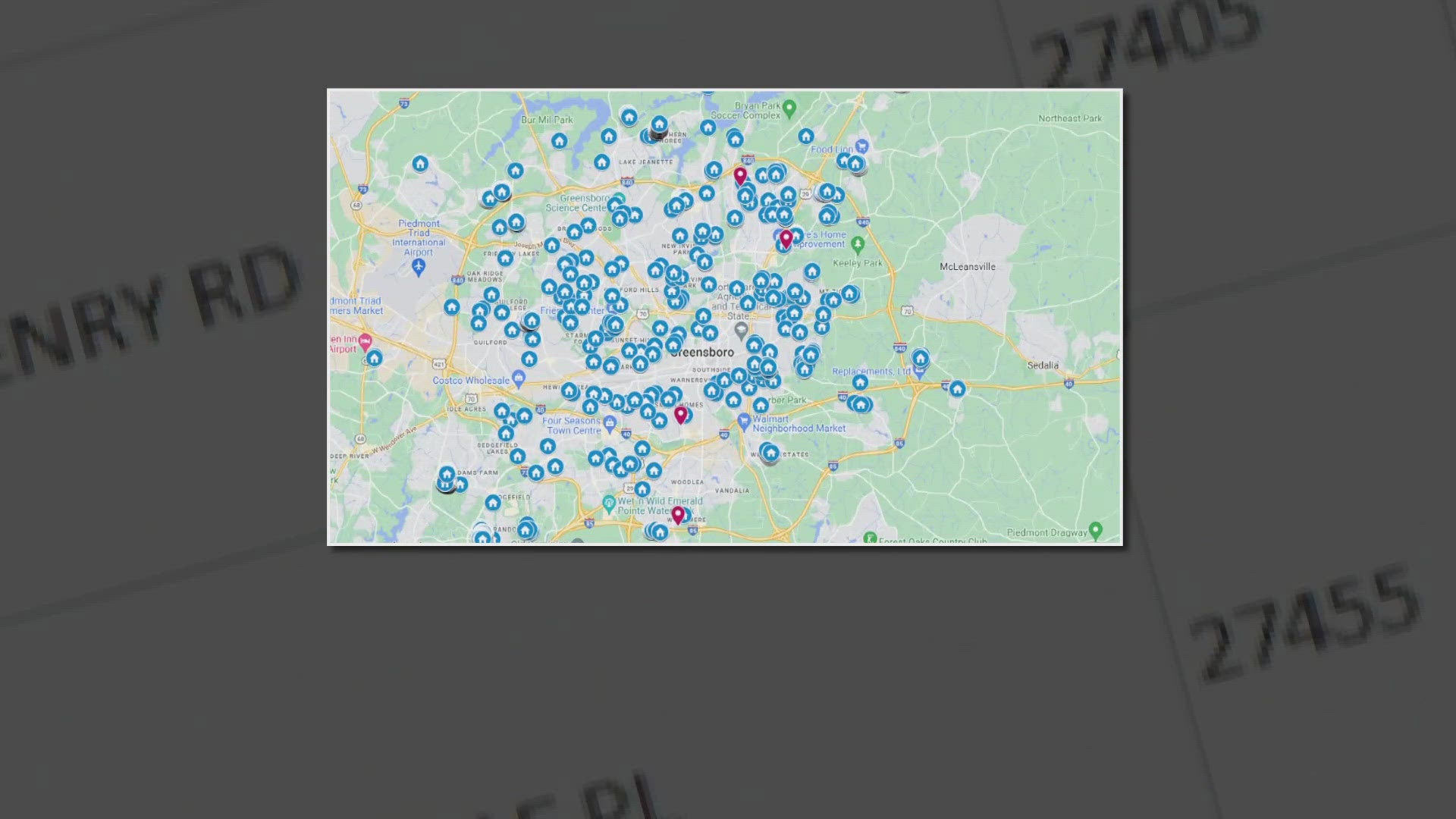GREENSBORO, N.C. — You've probably been driving down the road when all of the sudden, those police lights are flashing in your rearview. Maybe they ask you why you think they pulled you over, or they ask to search your car or want you to take a breathalyzer test. Do you know what you can and cannot say 'no' to?
Steve Friedland with Elon Law was on 2 Wants to Know talking about your rights at traffic stops.
How does the Fourth Amendment to the Constitution protect people?
Friedland says the Fourth Amendment protects you from government stops, searches and seizures -- that includes protection from police, and stops that happen in traffic.
He says police must have a reasonable suspicion that you violated traffic or other laws to pull you over.
Can a police officer stop and search a car under the Fourth Amendment?
Friedland says the searching of a car is generally not allowed unless the police have probable cause to do so. They might have had a reason to stop you, but that doesn't give them the right to just search the car.
One exception: If a person consents. But Friedland says the consent must be voluntary. You can say no to an officer's request to search your car.
And to avoid ambiguity, Friedland recommends you respond with "no, you cannot search my car" instead of "yes" or "no."
How does the Fifth Amendment to the Constitution protect people?
The Fifth Amendment protects people from self-incrimination, it involves statements according to Friedland. He says if people are being interrogated while in custody, they have the right to remain silent. Think "I plead the Fifth."




